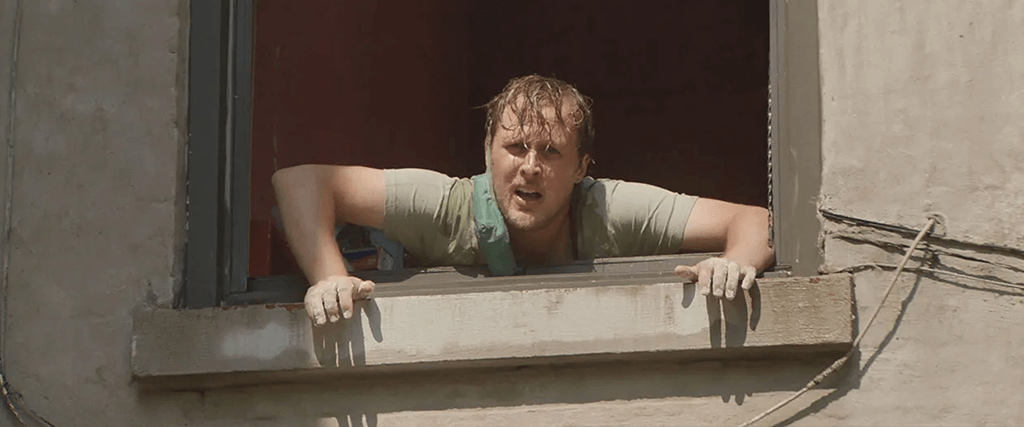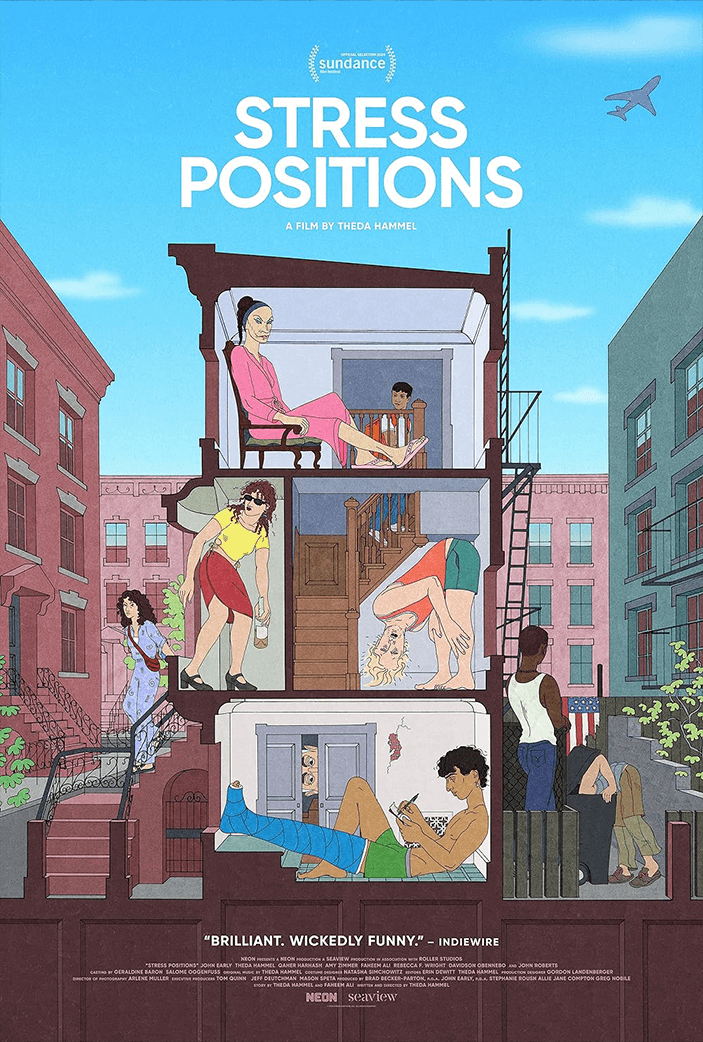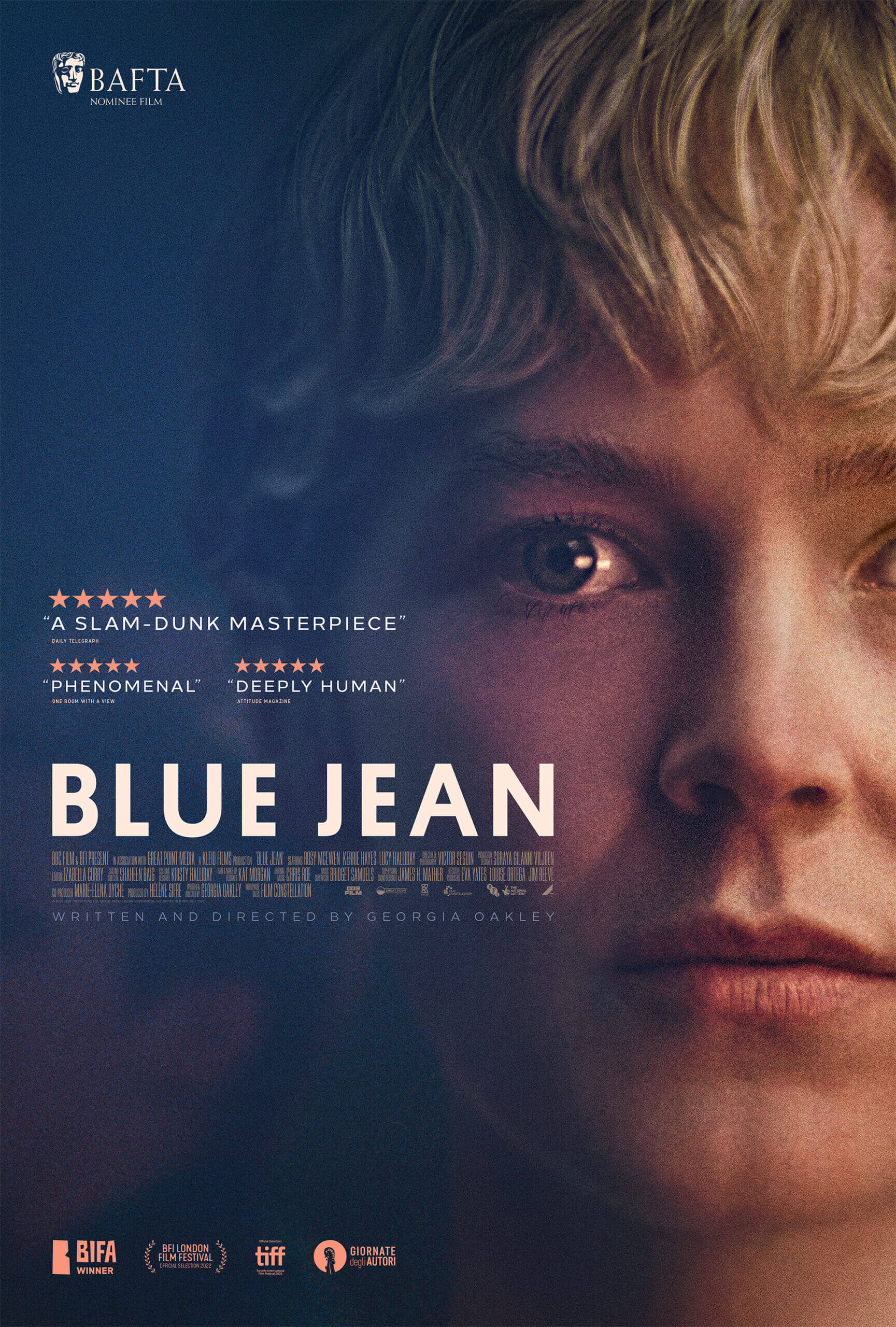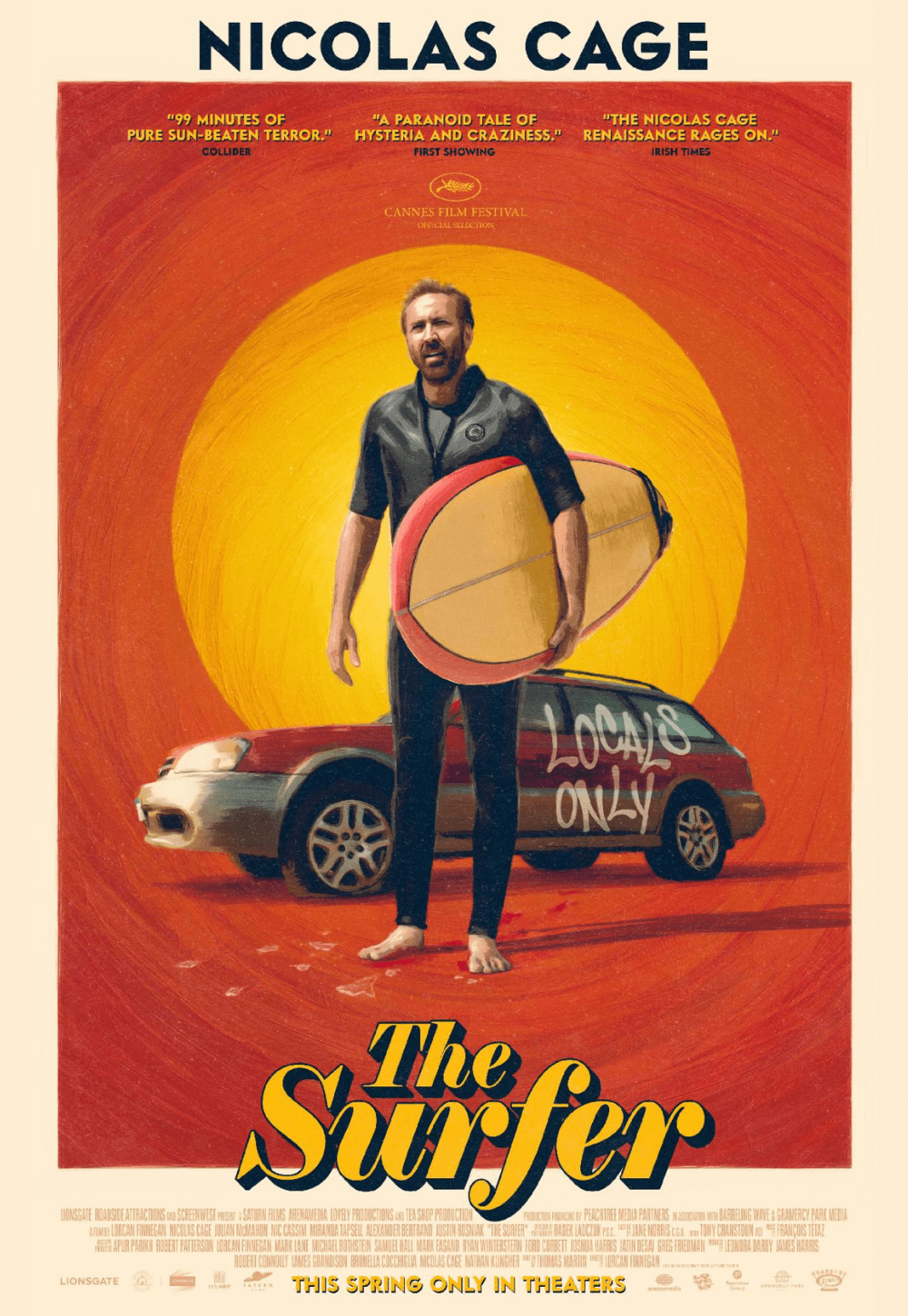
Stress Positions
By Brian Eggert |
Movies can sometimes achieve exactly what they set out to do and still manage to be quite disagreeable. Stress Positions is such a film. As the title suggests, the narrative entails several high-pressure situations designed to aggravate the viewer, cause sympathy anxiety, and generally leave anyone watching in a state of wanting to pull their hair out. I may have exacerbated my thinning hair just by watching it, and my blood pressure increased by a few points. The comedy, distributed by Neon, contains interludes of gentle narration, even lyrical calm, with a dash of poetic observation and expression, however infrequent. But these moments barely break the onslaught of its cast of characters behaving in infuriating ways to one another. The film perpetuates a madcap scenario that may prove triggering for those averse to tense situations, off-putting manners, or thinking about the first summer of COVID-19 lockdown in 2020—the early days of the pandemic when people were still spraying down cash and food containers—a time we’d probably all like to forget.
Stress Positions is the brainchild of writer-director Theda Hammel, who also plays one of the many chaotic queer millennials here. Within the first few minutes, Hammel obliterates whatever internal calm the viewer is experiencing and replaces it with tight shoulders, a sweaty brow, and profound frustration. Set mostly in a brownstone in Brooklyn nicknamed the “Party House,” the story centers on Terry (John Early), who juggles several bothersome friends. But it’s Bahlul (Qaher Harhash), Terry’s Moroccan male model nephew who needs looking after due to a broken leg, who brings everyone over. Bahlul’s presence attracts attention from Terry’s trans lesbian friend Karla (Hammel), who constantly fights with her wife, Vanessa (Amy Zimmer), an author who used Karla’s life for her book without permission. Terry’s ex-husband Leo (John Roberts) also shows up with his new fiancé just to add fuel to the fire. And Coco (Rebecca F. Wright), a vampish woman who “came with the building,” is always lurking around.
Hammel replicates the manic energy of a David O. Russell comedy, with characters racing around and following every unapologetic impulse, saying every awful thing that pops in their head, as though each exists in a world unto themself. At one point, Terry prepares raw chicken breasts in an egg bath for fried chicken when he becomes distracted. Here’s a character who sprays disinfectant at people when they walk away, yet he goes around touching the house with salmonella fingers, drops the chicken on the floor, and slips on it. Elsewhere, Terry attempts to be inclusive with Bahlul, pretending to be well-versed in Morocco, which he thinks is nestled in the Middle East. So he reacts defensively when Karla wants to burn a flag for a social media video, worrying that somehow Bahlul will be accused of terrorism. This might all be Terry’s misguided attempt to make him appear sensitive to people of color after his post-9/11 racial profiling, resulting in the film’s typically broad approach to social commentary.
Looking over my notes for Stress Positions, I scratched the words “Why are these people friends?” into my notebook. None of them seem to like each other, and when in each other’s presence, their only objective seems to be annoying, arguing with, and jabbing at their so-called friends. But it’s not all so disorderly. Hammel wrote the film with Faheem Ali, who plays a recurring Grubhub delivery guy. Their characters often share intimate details of their lives via narration in the form of artistic confessions or recollections, some of which are genuinely moving in their intimacy. But those moments barely interrupt the sense of uneasiness, captured in frantic camera movements and natural light by cinematographer Arlene Muller and manic editing by Hammel and Erin DeWitt. They’re also countered with broad, gross-out humor, such as when Leo has an awkward interaction with a message gun. Of course, the prevailing sense of imbalance and frenzy is by design, but that doesn’t mean the artistic drive will be to everyone’s taste.
It’s an exceedingly busy and hectic experience, watching Stress Positions. Other movies have done this sort of thing better, from Russell’s Flirting with Disaster (1996) to Emma Seligman’s Shiva Baby (2021), and left viewers with more goodwill toward their respective characters. Hammel’s film makes me appreciate those other examples even more, because they manage to put the audience through the wringer without sacrificing our investment in the story. Here, I sank into my chair within the first few minutes, deplored by the haywire energy of this experience, and couldn’t wait for it to end. What Hammel has done and how she made me feel is almost admirable; it’s effective in that the movie achieves what I believe was the desired reaction. But knowing that I was supposed to feel annoyed, anxious, and frustrated didn’t make enduring these 95 minutes any easier.

Consider Supporting Deep Focus Review
If you enjoyed this piece, I hope you’ll consider supporting the site through Patreon or a one-time donation. Deep Focus Review is an independent source for movie reviews and in-depth critical analysis. Contributing Patrons receive early access to new reviews and essays, along with a closer connection to a community of fellow film enthusiasts. Your support directly helps cover site maintenance, research materials, and the time needed to produce quality writing. If you enjoy my work, please join me on Patreon or show your support in other ways.
Thank you for your readership!
Brian Eggert | Critic, Founder
Deep Focus Review







